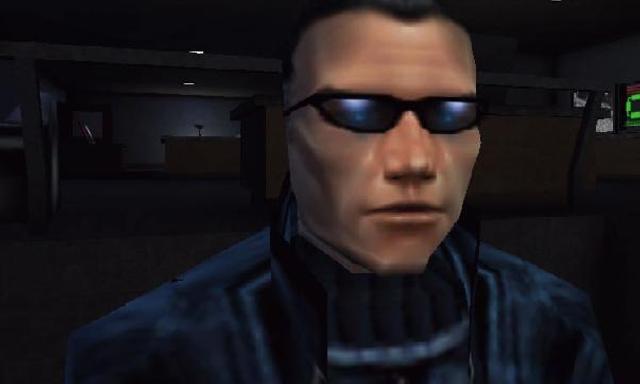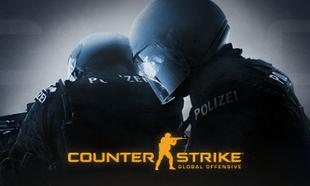The English philosopher John Locke is quoted as saying that humanity exists in a state of perfect freedom.
Look, we're discussing 'Deus Ex', philosophy was going to appear somewhere.
Many games promise you the moon only to fall up short because of technical limitations.
Total freedom has long been a point of contention within gaming, but is very rarely achieved.
'No Man's Sky' was meant to be the second coming of Christ and was going to offer players unlimited freedom to reshape a universe of infinite planets, but the game was as exciting as an Excel spreadsheet.
The games of David Cage make bold promises about being able to fundamentally shift a games narrative to how you see fit, but you're always railroaded down a pre-determined path.
Todd Howard claimed that 'Skyrim' had infinite questlines and that 'Fallout 3' had over 200 endings.
All these games have something in common: they were all released after 'Deus Ex' in 2000 and none of them could ever possibly hope to match up to the sheer depth and freedom offered by Warren Spector's immortal RPG.
Rage Against The Machine
As with any game in this retrospective series of articles, it is always crucial to remember the cultural mindset and context a game was released in.
'Deus Ex' hit PC in the year 2000, mere months after people worked themselves into a panic over Y2K and 'The Matrix' became the hottest film franchise almost overnight.
Suddenly, themes of corporate warfare, cyberpunk, human augmentation and themes of technology run amok were hip.
Game development is often a long and ardorious process, and can be best described as trying to hit a moving target.
It is impossible to know what the cultural mindset will be like when a game finally releases.
Naughty Dog couldn't have known that 'The Last Of Us Part II' was going to be released at a time of great social upheaval in June 2020 and while the Covid-19 pandemic was still in its early days.
On the flip side, Ion Storm couldn't have known that when they released 'Deus Ex' in 2000, it would capture the public mood in a very specific way.
It is reductive to boil a game's success or failure down to "the timing was right/wrong," but with 'Deus Ex', it is entirely appropriate to ascertain that 'Deus Ex' hit PC gamers at just the right time.
The opening level of 'Deus Ex' is often regarded as one of the great opening levels in video game history, with players tasked with sorting a hostage situation on Liberty Island.
The game spells it out for you incredibly plainly - you have complete control of how the situation unfolds.
Want to go in guns blazing like Rambo? No problem.
Fancy sneaking around and knocking out enemies one by one like an incredibly passive-aggressive version of Hide and Seek? Sure.
Riddle the enemies with enough tranquiliser rounds to knock out an elephant? Fair game.
Never engage with the enemy and simply progress to the next mission? Can do.
'Deus Ex' was wholly reactive of how you wanted to play the game.
The "play it your way" school of game design riddled most games in the 2010s and the sandbox became the de jure method of developing a game, and despite all the advances in technology, none of these games even hold a candle up to the level of freedom and complexity as 'Deus Ex'.
Hell, not even 'Deus Ex' itself could live up to the standards it set itself.
2011's 'Deus Ex: Human Revolution' is a fine game by most metrics, but it has all the depth of a puddle compared to the ocean-size depth of the original 'Deus Ex'.
The story of Adam Jensen is a punk rock song compared to the original's sweeping prog rock epic.
And in a lot of ways, 'Deus Ex' was the victim of its own success and ambition.
I choo-choo-choose you
'Deus Ex' could tell an epic, sprawling story with near-limitless choices and consequences because the game was being made for PCs in 2000.
Gaming development at the turn of the century was relatively speaking, less labour-intensive than it is today.
Gamers and developers didn't stress over HD textures or graphics until the mid-2000s, meaning that games could just focus on being fun to play.
In the mid-2000s there was a shift in game design from making the most in-depth game possible to making the best-looking game possible.
Very few games can do both.
Games like 'Skyrim' and 'Fallout' have relatively poor graphics, but they compensate by being large, sprawling open worlds.
Smaller games like 'Disco Elysium' and 'Minecraft' compensated for not having cutting-edge graphics by either having ground-breaking, innovative stories in the former case, and generation-defining gameplay in the latter instance.
In the case of 'Deus Ex: Human Revolution' the team at Eidos Montreal focused on giving the game a distinct black and gold colour pallette and top-tier graphics, but at the expense of fleshing out the game world.
In 'Human Revolution', your choices ultimately mean nothing, and the hubs between missions are richly detailed, but smaller in size.
Development of 'Human Revolution' was famously tortured and it's a minor miracle the game was released in a playable state, let alone turning out pretty good, but sacrifices had to be made at the alter to make it a 2011 game.
Further still, 2016's 'Mankind Divided' limited players to just one city hub, which was more highly detailed, but once again, had very little depth compared to the original.
In the orginal 'Deus Ex', you could spend hours wondering the streets listening in to NPC conversations, undergoing side quests, or just mess around.
If you were so inclined, you could sink all of your points into maxing out your swimming skill despite it not being a necessity.
You could max out your swimming skills at the expense of your combat abilities being akin to a wet tissue, and at no point does the game tell you that this is a bad idea.
Crucially, you can spend the entire game hobbling around boss battles and not killing enemies and making for the exits like you just realised you left the stove on.
It is entirely possible to finish the game without laying hands on an enemy and talking your way out of it.
'Deus Ex' gives you the freedom to do this, and if players tried to mess around with their character's skill points in a modern game, the game would slap you and tell you to invest in combat mechanics.
As small of a point this is, being able to sink all your points into swimming is just one of the literal hundreds of examples 'Deus Ex' grants the player agency and total freedom.
Back To The Future
We just spent the best part of a 1000 words waxing lyrical about the gameplay of 'Deus Ex', and that's before we even get into the story.
Going back to our earlier point about the game hitting audiences at just the right time, it is important to remember the cultural context circa 2000.
'The X-Files' was still riding high on TV, 'The Matrix' made wearing sunglasses indoors cool, and computer hackers were considered hip and sexy.
The computer nerd and conspiracy theorist, once looked upon with a sense of mockery, were now seen as hip and cool.
In the world of music, rap-tinged rock bands like Limp Bizkit and Deftones and electronic-tinged music from Moby and Darude were chart-toppers.
This cultural environment served as the perfect backdrop to let the world of 'Deus Ex' get its hook into players.
What 'Deus Ex' does better than perhaps any game is setting a tone.
The minute you boot up the game, you are instantly transported to a world of trench coats, people wearing sunglasses indoors, a world of smoky backroom deals and shadowy cabals.
How you experience the game's rich story is entirely up to you.
Towards the end of the game, players are presented with three choices that influence the ending.
Per the 2004 sequel 'Invisible War', all three endings are partially canon, but the way the game handles the ending is much more than "press the button and see what happens".
Different factors influence the endings, and the endings are achieved through player agency and their actions in gameplay.
Nowadays a game having branching ending paths is dime-a-dozen, and the likes of David Cage will claim they invented the idea of multiple endings, but the simple fact is 'Deus Ex' is the players playground.
Future Imperfect
When we pick a game to be covered on this series, we consider it on a number of grounds such as innovation, notability, or artistic merit.
'Deus Ex' fits in all the categories.
Many games have offered us the illusion of choices having consequences or your actions affecting the game world, but in the 20+ years since release, no game has been as flexible as 'Deus Ex'.
It is a true miracle of gaming, and is like a great folk song.
It can be interpreted, remixed or homaged in a number of ways, but you can never beat the original.
There's a reason why fitting sports players' names to the tune of 'Seven Nation Army' quickly became stale - the original did it better the first time.
'Deus Ex' fits in the same category.
Games like 'Heavy Rain', 'The Walking Dead' and 'Fallout 4' make a big deal out of your choices mattering, but they all eventually force players down the same stretch of road.
'Deus Ex' is whatever you want it to be, and that could be a conspiracy thriller starring people with bad trench coats or a comedy about a socially awkward man who communicates by knocking people out.











































































